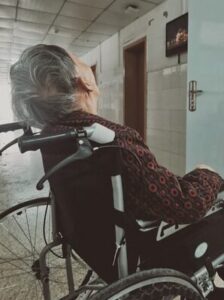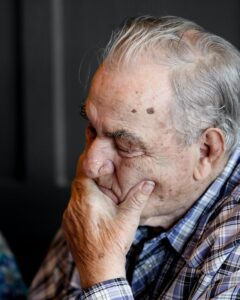Page Contents
Syncope, commonly known as fainting or passing out, is a sudden and temporary loss of consciousness that can be a serious concern, especially for elderly individuals. While it can occur at any age, syncope poses unique dangers to the elderly population due to various factors.
In this blog, we will delve into the prevalence of syncope among the elderly, explore the risk factors associated with it, discuss its symptoms and potential complications, outline available treatment options, provide guidance on prevention, and conclude with the importance of addressing this issue.

Trend in elderly population
As our society continues to age, the elderly population is increasing significantly. The ageing process itself brings about physiological changes in the cardiovascular system and other important organ systems, making older individuals more susceptible to syncope. Furthermore, age-related comorbidities such as hypertension, diabetes, and heart diseases contribute to a higher incidence of syncope in the elderly as compared to a healthy individual.
Risk factors of syncope
Several risk factors increase the likelihood of syncope in elderly individuals:
Cardiovascular issues
Conditions like arrhythmias, aortic stenosis, atherosclerosis, and heart failure can disrupt blood flow to the brain, leading to syncope.Medications
Elderly individuals often take multiple medications, some of which may lower blood pressure or affect heart rate, increasing the risk of fainting.Dehydration
Age-related changes can decrease the body’s ability to retain water, making seniors more susceptible to dehydration, which can trigger syncope.Orthostatic hypotension
A drop in blood pressure upon standing is a common issue in older adults, it can result in fainting episodes as well.
Symptoms of syncope
Recognizing the symptoms of syncope is crucial for prompt intervention. Some common signs include:
Sudden loss of consciousness, often with a short period of confusion before or after.
Pallor or a sudden, noticeable change in skin colour.
Dizziness, lightheadedness, or a feeling of impending fainting.
Nausea or vomiting.

Complications of syncope
Syncope can have serious consequences, especially in the elderly:
Falls
Sudden loss of consciousness can lead to falls, resulting in fractures or head injuries.Secondary health issues
Syncope may be a symptom of an underlying, potentially life-threatening condition, such as a heart problem.Reduced Quality of Life (QoL)
Fear of syncope episodes can lead to social isolation and anxiety in older individuals.

Treatment options
The treatment of syncope in the elderly depends on the underlying causes. It may involve:
Medications
Prescription drugs for conditions like arrhythmias or orthostatic hypotension can help manage the condition.Lifestyle modifications
Adjustments in diet, hydration, sleep pattern, and physical activity can be beneficial.Pacemakers or implantable cardioverter-defibrillators (ICDs)
These devices can help regulate heart rhythm and prevent syncope in certain cases.Addressing medication side effects
Adjusting or discontinuing medications that affect blood pressure and contribute to syncope.
How to prevent syncope in elderly people
Prevention plays a pivotal role in reducing the risk of syncope among the elderly people:
Medication management
Regularly review medications with a healthcare provider to minimize undesired side effects.Stay hydrated
Adequate fluid intake can help prevent dehydration, a common syncope trigger.Avoid triggers
Identify and avoid activities or situations that provoke syncope, such as prolonged standing or extreme heat.Regular check-Ups
Routine medical check-ups are essential for monitoring and managing underlying health conditions.
Conclusion
Syncope in elderly people is a significant concern that can lead to severe complications and reduced Quality of Life. As the elderly population continues to grow, it is imperative that healthcare professionals, caregivers, and family members remain vigilant in identifying and addressing the risk factors associated with syncope.
Early diagnosis, proper management, and preventive measures can greatly improve the well-being of elderly individuals and help them maintain their independence and health as they age.
